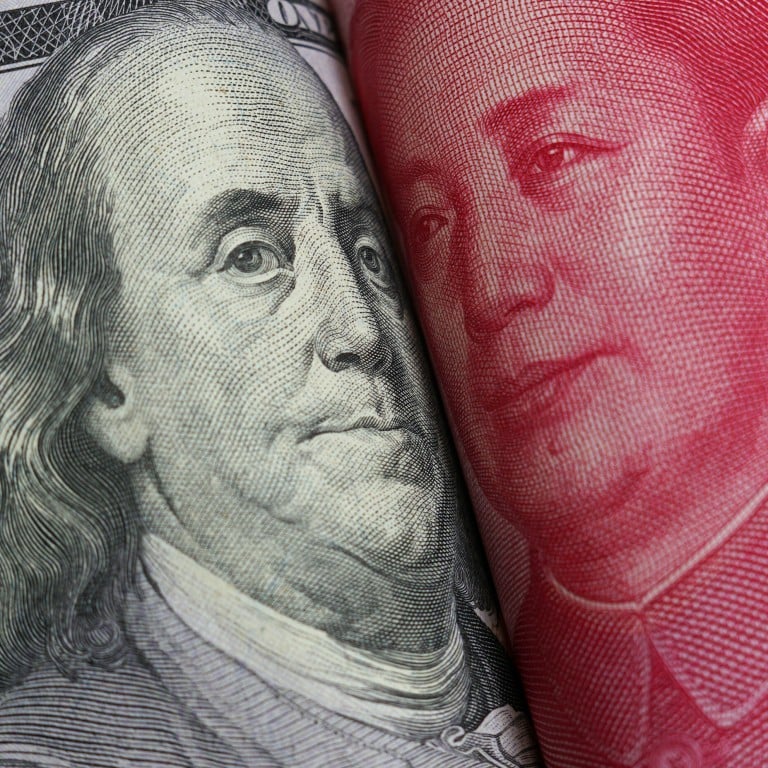
Explainer | US debt to China: how big is it and why is it important?
- As of the end of November, China owned US$1.063 trillion of the total outstanding US government debt issued by the US Department of the Treasury.
- Since the start of the trade war in 2018, there has been concern over China possibly weaponising its US debt holding as a way to retaliate against trade tariffs
What is the US government debt that China holds?
How much does the US owe China?
The Chinese government does not disclose how much US debt it owns, but the US Treasury publishes monthly data on all foreign holders of US debt, and China has historically been among the top foreign holders of US debt, along with Japan.
However, the US Treasury does warn that the data may not provide a “precise accounting of individual country ownership” of US Treasury securities, given that US securities can also be held in overseas custody accounts that may not be attributed to the actual owners. Market analysts have suspected for years that China uses securities firms in other countries to buy additional US debt.
Why does China buy US debt?
China manages its foreign exchange reserves by investing in different assets that offer safety and stability so it can use the reserves to counter volatility in fund flows and to stabilise its economy during a financial crisis.
While China does not publicly disclose the foreign exchange reserve assets it has invested in, it has maintained a significant holding – around a third of its reserves – in US government debt, largely due to its status as a “safe haven” for investment during turbulent market conditions, as the US government has never defaulted on its debt.
Fitch Ratings and Moody’s Investors Services give the US their top credit rating of AAA and Aaa, respectively, while Standard & Poor’s rates the country’s long-term debt at AA+, just below the highest grade.
The US dollar is also widely accepted and extensively used in international transactions. Commodities such as oil and gas are priced and traded in the US dollar, which is the most convertible and most traded currency in the world.
What happens if China sells all of its US debt holdings?
If China were to begin dumping US debt, this could trigger a sell-off in the bond market, sending US interest rates higher and potentially hurting economic growth.
But a sudden sell-off could also cause the US dollar exchange to fall against the yuan, making Chinese exports more expensive. And a weaker dollar would result in China earning less money on its bond sales, in terms of the yuan.
In August 2015, China slashed its holdings of US Treasuries by around US$180 billion, but the move barely yielded any reaction in the bond market, nor in US interest rates.
However, large-scale selling by Beijing could still disrupt the US Treasury market and the wider financial markets, in particular, if it would be seen as a political move by the Chinese government to intentionally disrupt markets.
China might sell all of its US bonds in an extreme case, like a military conflict
Xi Junyang, a professor at the Shanghai University of Finance and Economics, was quoted by the Global Times as saying in September that China will “gradually decrease its holdings of US debt to about US$800 billion under normal circumstances”.
“But of course, China might sell all of its US bonds in an extreme case, like a military conflict,” he added.
What is the outlook for China’s US debt holdings?
China ratcheted up its US Treasury bond purchases starting in 2000, but its buying spree peaked in 2014, and its holdings have declined gradually since then.
The prospects of a further easing in US monetary policy and continued ultra-low interest rates for an extended period are also concerns for Beijing, as they would reduce the returns on US government debt.
Guo Shuqing, chairman of the China Banking and Insurance Regulatory Commission, warned that the unprecedented stimulus from the US might plunge the world into another global financial crisis.
“In an international monetary system dominated by the US dollar, the unprecedented, unlimited quantitative easing policy of the US actually consumes the creditworthiness of the dollar and erodes the foundation of global financial stability,” Guo wrote in an article published in the Chinese official journal Qiushi in August.
Between April and July 2020, China bought 1.46 trillion yen (US$14 billion) worth of medium to long-term Japanese government bonds on a net basis, the Japanese Nikkei news service reported in October, citing data from Japan’s finance ministry and its central bank. The amount was 3.6 times more than during the same period in 2019.
While it is clear that China is keen to lessen its dependence on US government debt, experts believe that Beijing is likely to continue buying US Treasuries, as there are few risk-free low cost substitutes.
Want to know more?

